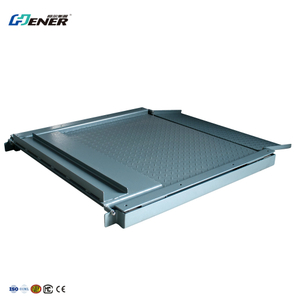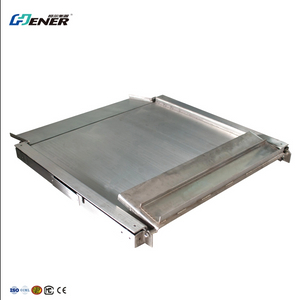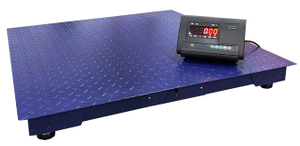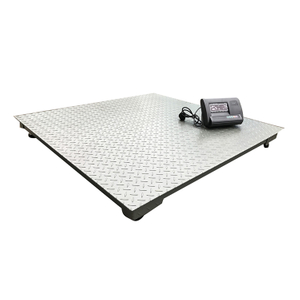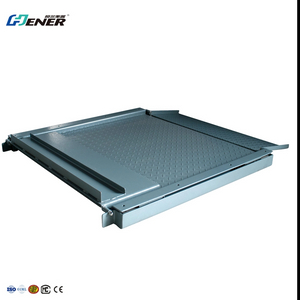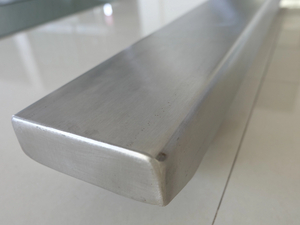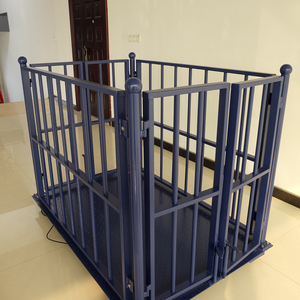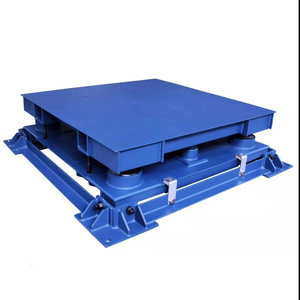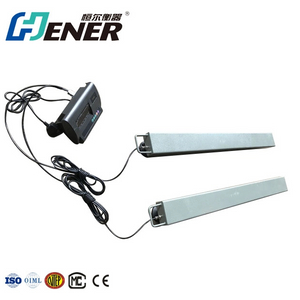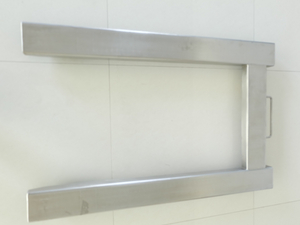
Weighing scales are indispensable tools in the textile manufacturing industry, ensuring precision, efficiency, and quality throughout various stages of production. From raw material procurement to final product inspection, accurate weight measurement is crucial for maintaining consistency, optimizing processes, ensuring compliance with regulatory standards, and enhancing overall operational performance. This comprehensive exploration delves into the diverse applications of weighing scales in textile manufacturing and underscores their significance in supporting industry standards and driving innovation.
Precision in Raw Material Management
Fiber and Yarn Measurement
Accurate measurement of raw materials is the foundation of high-quality textile production. Weighing scales are used to measure precise quantities of fibers, such as cotton, wool, and synthetic materials, ensuring consistent quality and performance. This precision is essential for achieving uniformity in yarn production, which directly impacts the quality of the final fabric.
For example, in cotton spinning mills, scales are used to weigh bales of cotton before processing. This ensures that the correct amount of fiber is fed into the spinning machines, maintaining consistent yarn quality and reducing waste. Similarly, in synthetic fiber production, scales are used to measure the weight of polymer granules before extrusion, ensuring uniform filament properties.
Dye and Chemical Measurement
In the textile dyeing and finishing process, accurate measurement of dyes and chemicals is critical for achieving consistent color and finish quality. Weighing scales are used to measure precise quantities of dyes, pigments, and auxiliaries, ensuring that the correct concentrations are used in dye baths and finishing solutions.
For instance, in a dyeing plant, scales are used to measure the weight of dyes and chemicals required for a specific batch of fabric. Accurate measurements ensure that the fabric achieves the desired color shade and fastness properties, reducing the risk of rework and improving overall product quality. Advanced digital scales and automated dispensing systems are often used to enhance accuracy and efficiency in dye and chemical measurement.
Quality Control and Assurance
Fabric Weight and GSM Measurement
Weighing scales play a crucial role in quality control and assurance processes within the textile industry. One of the key quality parameters in textiles is the weight of the fabric, typically expressed in grams per square meter (GSM). Accurate measurement of fabric weight is essential for ensuring that the product meets specified standards and customer requirements.
Scales are used to measure the weight of fabric samples, allowing manufacturers to calculate the GSM accurately. This data helps in maintaining consistency in fabric production, ensuring that each batch meets the desired specifications. Accurate GSM measurement is particularly important for applications where fabric weight impacts performance, such as in technical textiles and apparel.
In-Process Quality Checks
Weighing scales are integral to in-process quality checks, which involve monitoring the weight of textile products at various stages of production. For example, in the weaving process, scales are used to measure the weight of warp and weft yarns to ensure they conform to the required specifications.
Accurate weight measurements help identify deviations from the specified weight range, allowing for timely corrective actions to be taken. This ensures that the final product meets quality standards and reduces the risk of defects. In-process quality checks also help optimize material usage, reducing waste and improving overall efficiency.
Optimizing Production Processes
Batch Production and Blending
In textile manufacturing, batch production and blending processes require precise measurement of raw materials to achieve consistent quality. Weighing scales are used to measure the weight of fibers, yarns, and other materials in batch production, ensuring that each batch is consistent with the previous ones.
For example, in the production of blended fabrics, scales are used to measure the weight of different fibers, such as cotton and polyester, to achieve the desired blend ratio. Accurate measurement ensures that the blend properties, such as strength, softness, and durability, meet the required specifications. This precision is essential for maintaining consistency in the final product and optimizing production efficiency.
Process Automation
In modern textile manufacturing, process automation is essential for achieving high levels of precision and efficiency. Weighing scales are integrated into automated production lines to enhance accuracy and productivity. For instance, automated weighing systems are used in the mixing of dyes and chemicals, ensuring that the correct proportions are used in the dyeing process.
Automated weighing systems are also used in the finishing process, where scales are used to measure the weight of coatings and finishes applied to fabrics. This precision is essential for achieving consistent finish quality and optimizing material usage. By integrating weighing scales into automated processes, textile manufacturers can achieve greater precision, reduce cycle times, and improve product quality.
Ensuring Regulatory Compliance
Safety and Environmental Regulations
Compliance with safety and environmental regulations is a critical aspect of textile manufacturing. Regulatory authorities impose strict standards on the handling, storage, and disposal of chemicals and waste to protect the environment and public health. Weighing scales help textile manufacturers comply with these regulations by providing accurate weight measurements of chemicals and waste materials.
For example, in the dyeing and finishing process, scales are used to measure the weight of dyes and chemicals to ensure they are used and disposed of in accordance with environmental regulations. Accurate weight data helps maintain compliance with safety standards, reducing the risk of chemical spills and environmental contamination.
Documentation and Traceability
Weighing scales play a critical role in documentation and traceability within the textile manufacturing industry. Accurate weight measurements are essential for maintaining detailed records of raw materials, chemicals, and finished products. This data supports comprehensive documentation and traceability, helping companies demonstrate compliance with regulatory requirements and quality standards.
For instance, textile manufacturers are required to maintain records of the weight and composition of materials used in production. Accurate weight data ensures that these records are precise and reliable, supporting transparency and accountability in manufacturing practices. This information is critical for audits, inspections, and regulatory submissions, helping companies maintain compliance with industry standards and regulations.
Enhancing Safety and Performance
Worker Safety
Ensuring the safety of workers is a top priority in textile manufacturing. Weighing scales help enhance worker safety by providing accurate weight measurements of materials and equipment, reducing the risk of overloading and accidents. For example, in the handling of heavy bales of cotton or rolls of fabric, scales are used to measure the weight to ensure safe lifting and transportation.
Accurate weight measurements also support the safe handling of chemicals used in dyeing and finishing processes. By providing precise data on the weight of chemicals, scales help ensure that they are used and stored safely, reducing the risk of spills, leaks, and exposure to hazardous substances.
Product Performance
In textile manufacturing, product performance is closely linked to the weight and composition of the materials used. Weighing scales help ensure that textile products meet performance specifications by providing accurate weight measurements of fibers, yarns, and fabrics. This data is essential for optimizing product performance, such as strength, durability, and comfort.
For example, in the production of performance apparel, scales are used to measure the weight of technical fibers and fabrics to ensure they meet the required specifications for moisture-wicking, breathability, and insulation. Accurate weight measurements help optimize the performance properties of the final product, enhancing its functionality and consumer appeal.
Supporting Research and Development
Textile R&D
Weighing scales are essential tools in the research and development (R&D) of new textile products and technologies. During the R&D process, accurate measurement of raw materials and experimental samples is critical for formulating and testing new textile solutions. Weighing scales support various R&D activities, including material characterization, process optimization, and performance testing.
In material characterization, weighing scales are used to measure precise quantities of fibers, yarns, and fabrics for analysis. This accuracy is essential for evaluating the properties and performance of new textile materials, such as advanced fibers, smart textiles, and sustainable fabrics. In process optimization, scales are used to measure inputs and outputs accurately, ensuring the reliability and reproducibility of experimental results.
Pilot Plant Operations
In pilot plant operations, weighing scales play a vital role in scaling up textile processes from the laboratory to production levels. Accurate measurement of raw materials and intermediates is essential for optimizing the pilot plant process and ensuring that it can be scaled up successfully. Weighing scales provide precise data that supports process optimization and helps identify potential issues before full-scale production.
By providing accurate weight measurements, weighing scales help ensure that pilot plant operations are conducted efficiently and safely. This precision is essential for developing scalable and sustainable textile processes that meet quality and regulatory standards.
English
العربية
Français
Русский
Español
Português
Deutsch
italiano
Nederlands
Tiếng Việt
ไทย
Polski
Türkçe
ភាសាខ្មែរ
Bahasa Melayu
Filipino
Bahasa Indonesia
Română
Čeština
Монгол
қазақ
Српски
हिन्दी
Slovenčina
Slovenščina
Norsk
Svenska
Ελληνικά
Suomi
Հայերեն
Latine
Dansk
Shqip
Hrvatski
Afrikaans
Gaeilge
Eesti keel
Oʻzbekcha
latviešu
Azərbaycan dili
Беларуская мова
Български
ქართული
guarani
Кыргызча
Lietuvių
Македонски
Malti
Soomaali
Тоҷикӣ
Türkmençe




